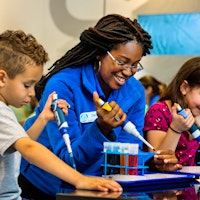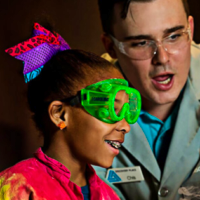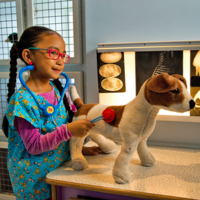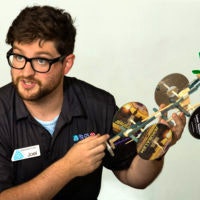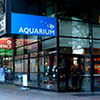|
*Individual Memberships available at Discovery Place Science and Discovery Place Nature only. **Family Museum Memberships at Discovery Place Kids-Rockingham are $130 ***Guest passes are available for Family Memberships only. |
|
||||||||||||||
Discovery Place celebrates International Women’s Day
Discovery Place celebrates International Women’s Day
Discovery Place
Happy International Women’s Day! This global day celebrates the social, economic, cultural and political achievements of women.
According to the Census Bureau’s 2009 American Community Survey, women comprise 48% of the U.S. workforce but just 24% of workers in STEM (science, technology, engineering and math) fields.
Across Discovery Place museums, 63% of our staff identify as female.
So, we asked some of these outstanding women: What inspired your interest in STEM?
Kataryna Flowers
Bachelor’s degree in Early Education (University of North Carolina – Charlotte)

“My interest in STEM came from growing up going camping and spending lots of time in the woods. I got really interested in the biological and natural sciences from observing the plants and animals in my backyard and the woods around my house. My parents would take us on nature walks, and we would try to identify different plants or animal tracks that we came across.”
Sydney Jenkins, Educator, School Programs & Outreach
Bachelor’s degree in Marine Biology (College of Charleston)
Master of Social Work (MSW) (Case Western Reserve University)
“As a child, I always loved animals, science experiments and building things. I wanted to understand how everything in the world worked and science was the way to find answers to my questions. A teacher in high school sparked my interest in Marine Biology and I worked at zoos and aquariums before coming to Discovery Place. Working with children in the community as an Outreach Educator inspired me to pursue my MSW so that I can help children have the resources they need to have the same engagement in things that inspire them and the ability to pursue them that I had when I was young.”
Krysta Purcell
Bachelor’s degree in English, Secondary Language (Appalachian State University)
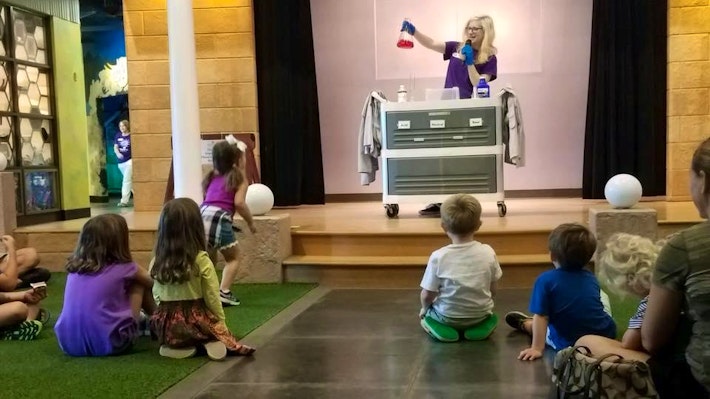
“My interest in STEM was sparked by biology classes when I was in high school. Learning how all living things are both similar and different and exploring the mechanics that allow life to continue, from the process of respiration happening within our own bodies to the compounds that make up our genetic material, opened my eyes to the wonder of the natural world all around us.
Later, I was able to see that same wonder that I felt at a young age on the faces of campers while teaching the all-girls STEM camp at Discovery Place Kids-Huntersville. Seeing their amazement and excitement during experiments and building challenges and knowing I was helping to establish a life-long love of STEM in these girls renewed my passion for STEM all over again.”
Alie Parks
Bachelor’s degree in Natural History and Interpretation (SUNY Environmental Science and Forestry – Syracuse NY)
“I was inspired by family who are avid outdoors people. I always loved exploring the natural world where I learned to hunt, fish, garden and become a steward of the land. My interest in STEM completely morphed in my school years, by doing hands-on science experiments and working with children. I love to share my knowledge of environmental sciences to people of all ages, showing them all the amazing things the natural world has to offer.”
Lauren Fike
Bachelor’s degree in Art History (University of Southern Indiana)
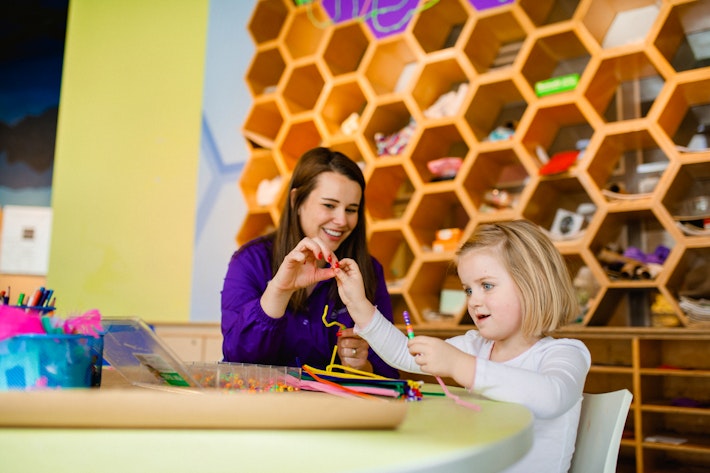
"I have always loved visiting museums. It started when I was a child when my family would visit a big city, we would visit all the museums. I ended up interning at an Arts, Science and History museum in college and fell in love with teaching in an informal environment. When a child visits the museum, they are learning about STEM while having fun, so it is a great first experience with learning."
Heather Norton
Bachelor’s degree in Psychology (University of Central Florida)
Master’s degree in Museum Education (University of British Columbia)
“As a visual, hands-on learner myself, I understand the importance and value of what we do. We inspire wonder and curiosity and empower a love of learning in others.
Museums, and Science Centers in particular, have an important function in our society. They strengthen their communities. They provide an environment for families and individuals to gather. Most importantly, they create spaces that encourage and celebrate critical thinking, curiosity and a love of learning. We create spaces that empower individuals to have agency over their learning and encourage dialogue with ideas, information, and technologies that otherwise may not have existed.”

